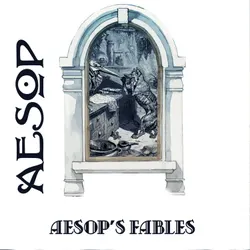Meet a jealous donkey, a tortoise who wants to fly, a very special goose and many other animals in this collection of tales, retold especially for children. Aesop's fables are the perfect way to learn important lessons about life through the adventures of some unforgettable animal friends.
For centuries, children and adults have treasured the stories handed down by Aesop, a slave who lived in ancient Greece approximately six centuries B.C. Known for their charm and simplicity, these simple tales feature brief adventures of animals, birds, and beasts — with a message hidden in each narrative. With infamous vignettes, such as the race between the hare and the tortoise, the vain jackdaw, and the wolf in sheep's clothing, the themes of the fables remain as fresh today as when they were first told and give an insight into the Ancient Greek world.
ABOUT THE AUTHOR:
Aesop (620–564 BCE) was an Ancient Greek fabulist or story teller credited with a number of fables now collectively known as Aesop's Fables. Although his existence remains uncertain and (if they ever existed) no writings by him survive, numerous tales credited to him were gathered across the centuries and in many languages in a storytelling tradition that continues to this day. Many of the tales are characterized by animals and inanimate objects that speak, solve problems, and generally have human characteristics.
Scattered details of Aesop's life can be found in ancient sources. An ancient literary work called 'The Aesop Romance' tells an episodic, probably highly fictional version of his life, including the traditional description of him as a strikingly ugly slave who by his cleverness acquires freedom and becomes an adviser to kings and city-states.












